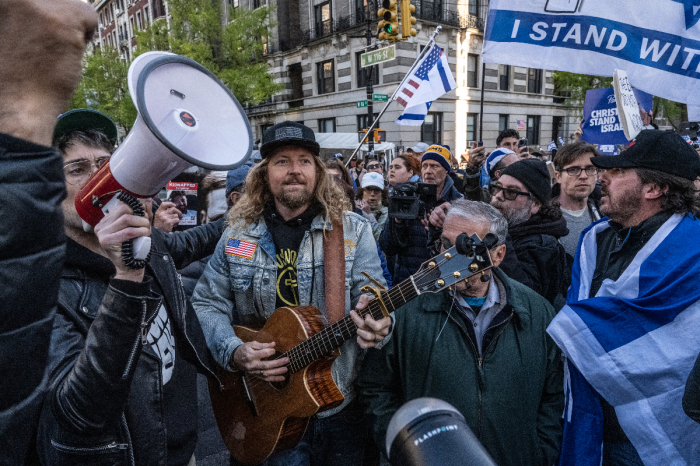
A Christian worship organization has filed a lawsuit against Quebec City, alleging that the Canadian municipality wrongfully canceled an event featuring American worship leader and activist Sean Feucht at the last minute last summer.
Burn 24/7 Canada Worship Ministries alleges in a suit filed Nov. 14 in Quebec Superior Court that Quebec City violated “constitutional and quasi-constitutional guarantees” by terminating their event featuring Feucht at ExpoCité, a city-owned venue, according to the CBC.
Quebec City, which was among eight Canadian cities that canceled stops along Feucht’s “Revive in 25” tour, terminated the organization’s ExpoCité contract on July 23, the day before Feucht was slated to perform, citing reputational concerns given his political opinions.
An outspoken supporter of President Donald Trump who first rose to prominence in the U.S. for holding outdoor worship gatherings in protest of ongoing church lockdowns during the COVID-19 pandemic, Feucht drew condemnation from multiple Canadian leaders last summer for opposing abortion, critical race theory and LGBT ideology.
“The presence of a controversial artist was not mentioned in the contract between ExpoCité and the promoter of the concert scheduled to take place on its site this Friday,” the city said in a statement at the time regarding the contract termination.
Olivier Séguin, an attorney who is representing Burn 24/7 Canada Worship Ministries, told the CBC that the ministry did not attempt to hide Feucht’s participation in the event, and that the city never asked about him.
“The city didn’t ask to mention who was going to perform. So nothing was hidden,” he said. “There was no attempt to hide the presence of Feucht.”
Unlike other municipalities that justified their decisions on public safety or security concerns, Quebec City relied on a broad contractual clause allowing it to take any action it “deems appropriate” if an activity risks harming its interests or reputation, the lawsuit states. The legal filing describes this justification as “so far-fetched and detached from the rule of law that it borders on irrational.”
The ministry is seeking reimbursement of the $2,609.93 paid to rent the ExpoCité space, $5,000 in damages for the alleged violations of rights, as well as a court declaration confirming that the cancellation infringed liberties protected under the Canadian Charter of Rights and Freedoms.
The Quebec City mayor’s office declined to comment on the litigation while it is before the courts, and a municipal spokesperson said he could not immediately confirm whether the city had been formally served with the claim, but added that no statement would be issued in any event, according to the CBC.
In September, the Ministerios Restauración Church, which is a Spanish-speaking congregation in Montreal’s Plateau-Mont-Royal borough, pleaded not guilty to an alleged municipal bylaw violation when they hosted Feucht after Montreal similarly canceled Feucht’s tour stop.
The church, whose hosting of Feucht prompted protests and a $2,500 fine, alleged the city government abused its power and violated the Canadian Charter of Rights and Freedoms.
Feucht warned in the wake of his tour cancellations that anti-Christian sentiment is growing in Canada, which drew international scrutiny when multiple pastors were jailed in the country for holding church services in defiance of government lockdown orders.
“Here’s the hard truth: If I had shown up with purple hair and a dress, claiming to be a woman, the government wouldn’t have said a word. But to publicly profess deeply held Christian beliefs is to be labeled an extremist — and to have a free worship event classified as a public safety risk,” Feucht said at the time.
Jon Brown is a reporter for The Christian Post. Send news tips to jon.brown@christianpost.com

















